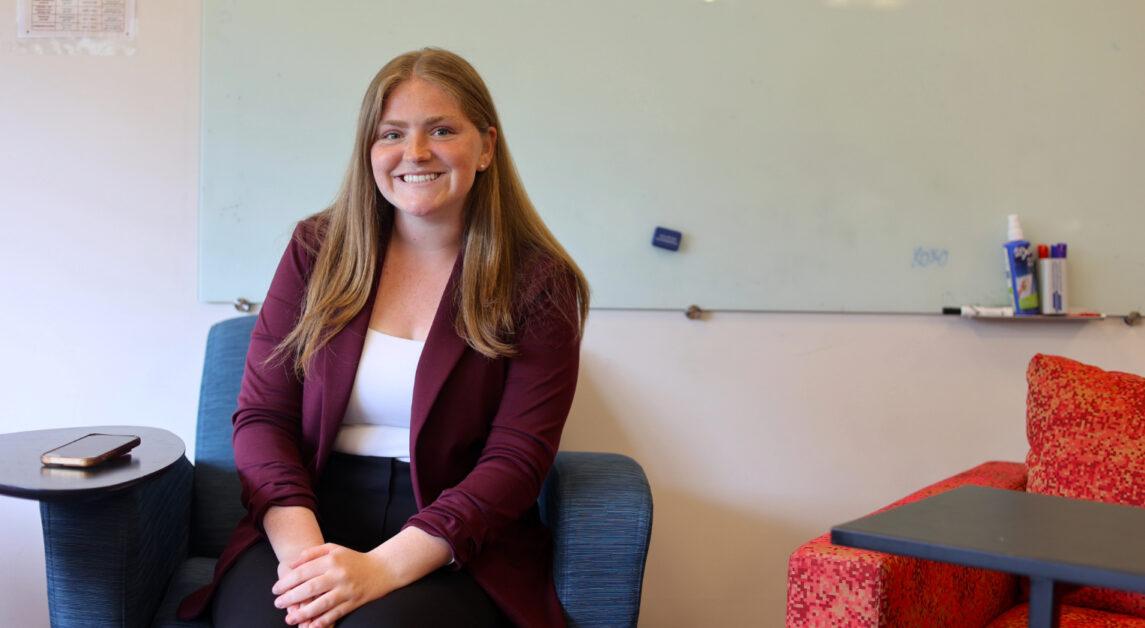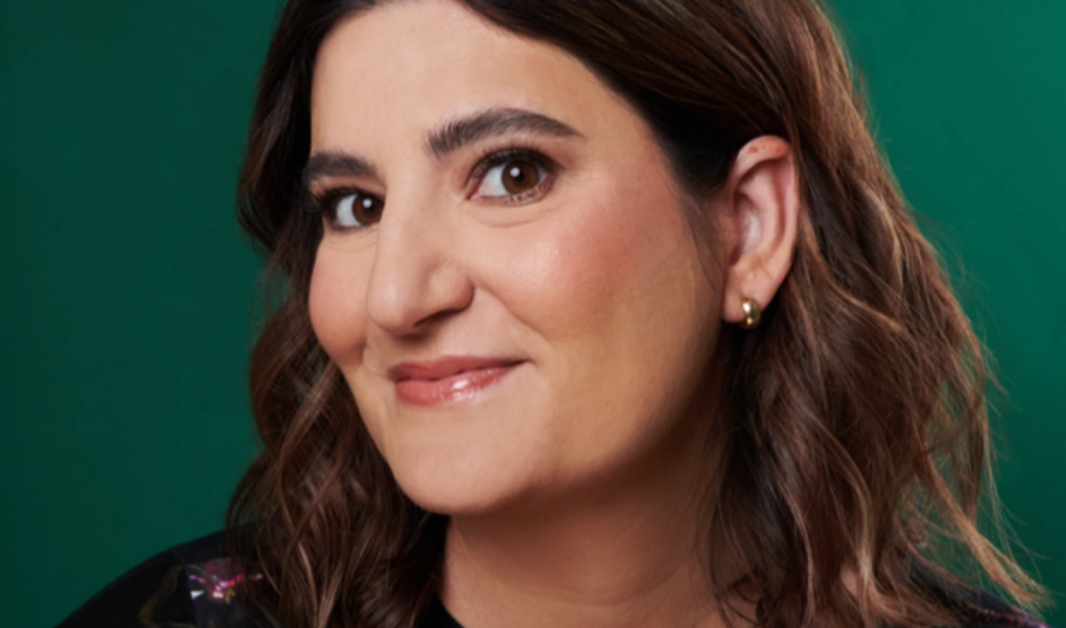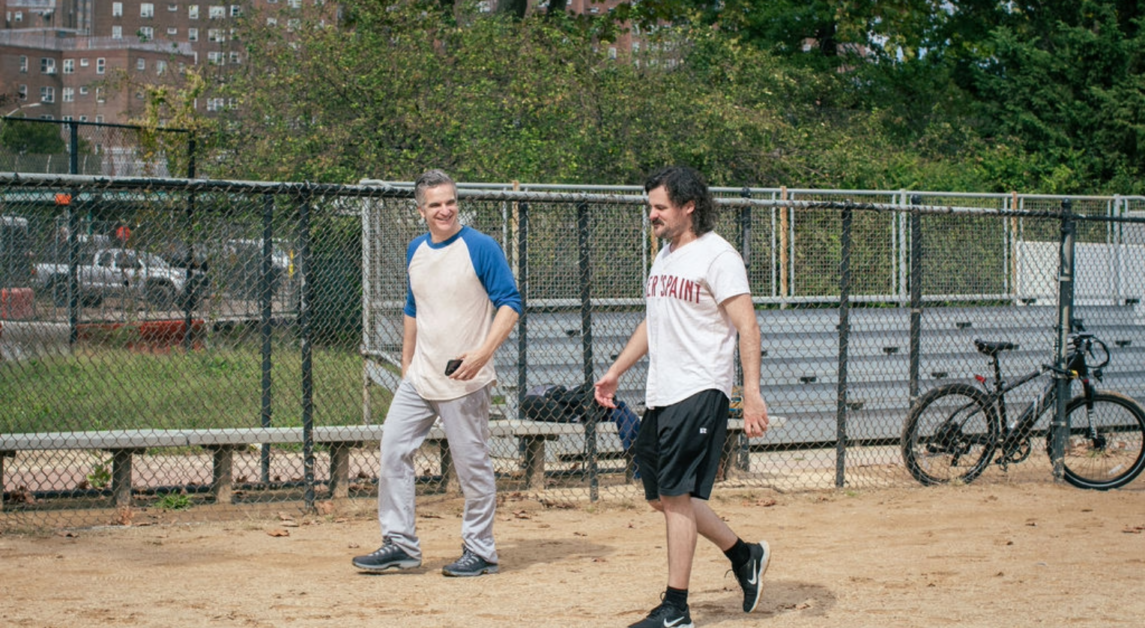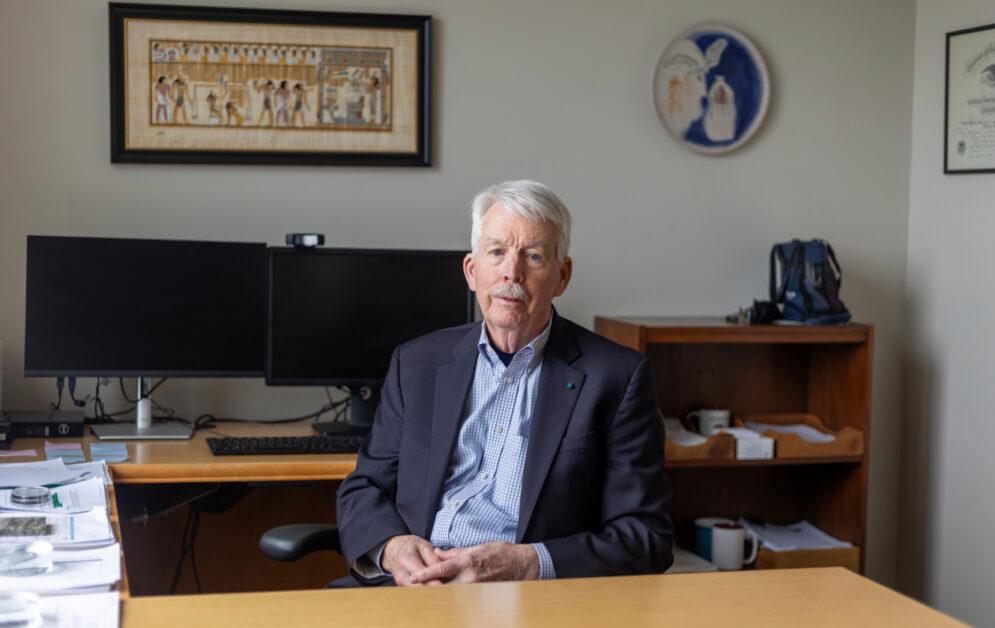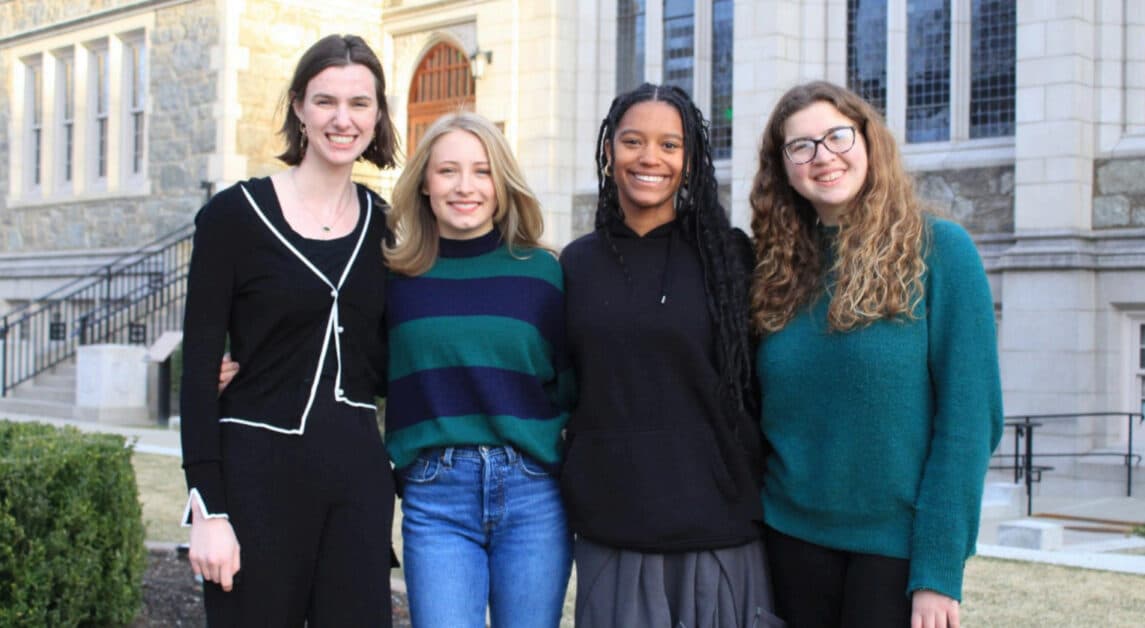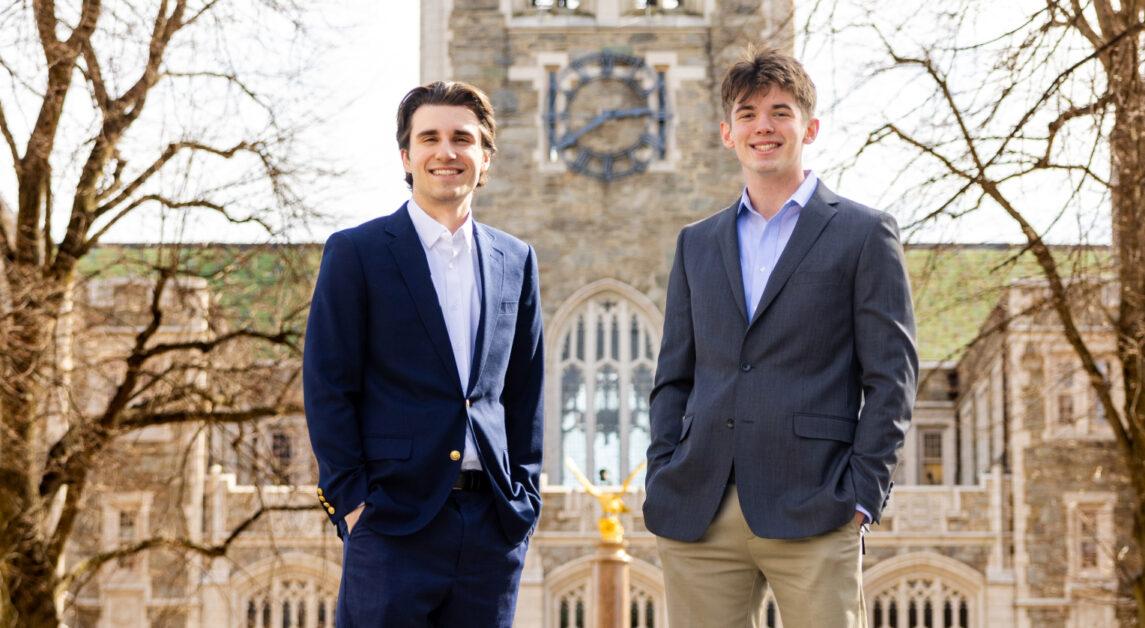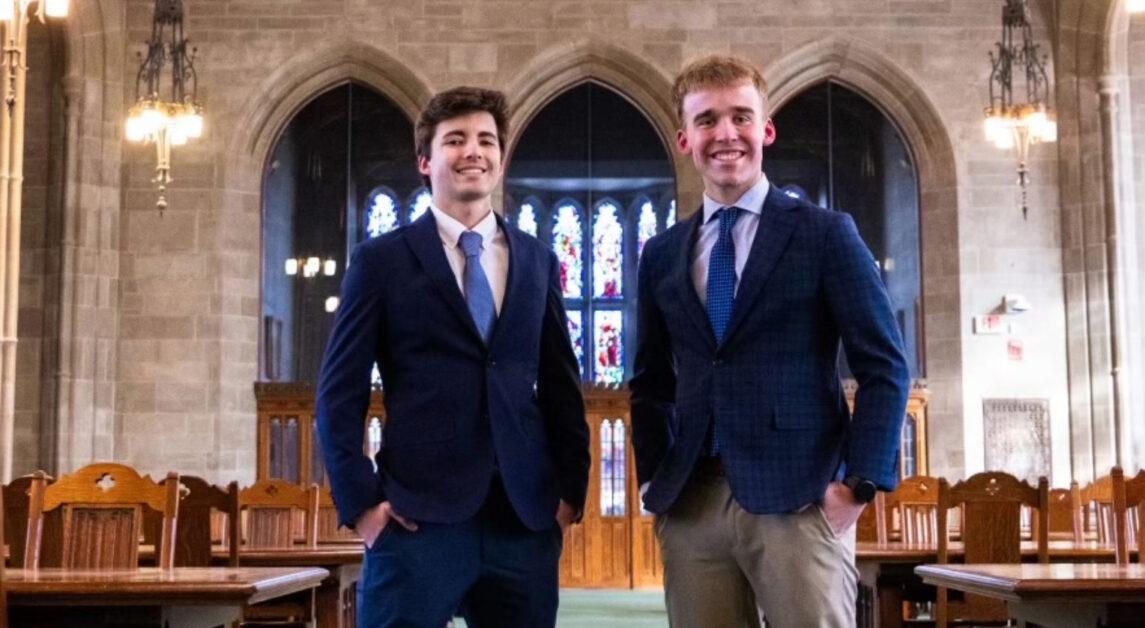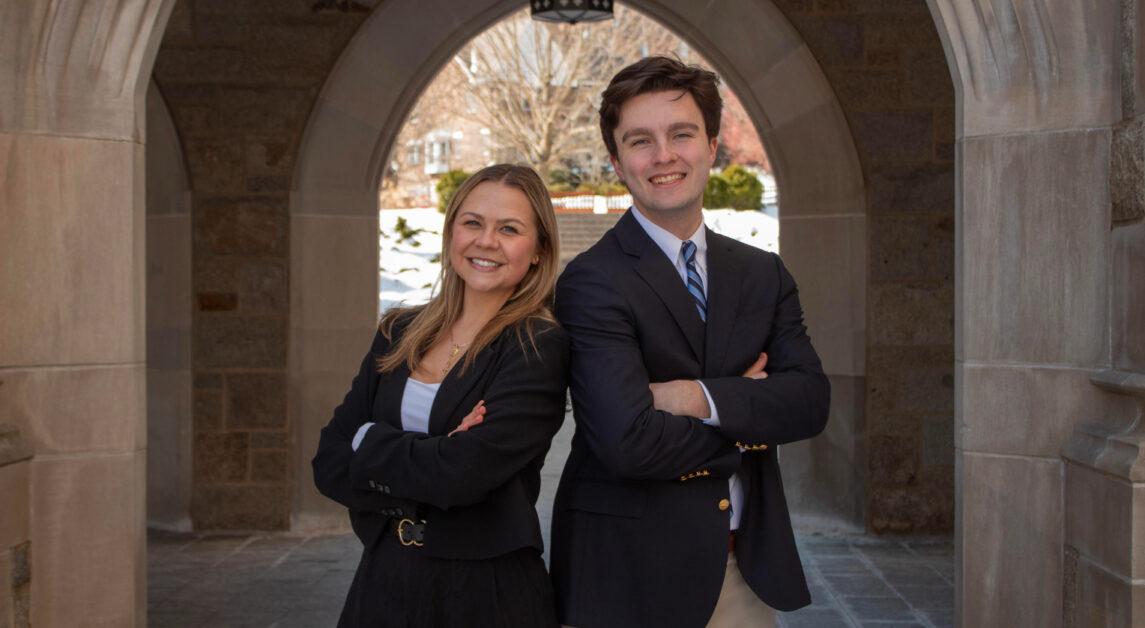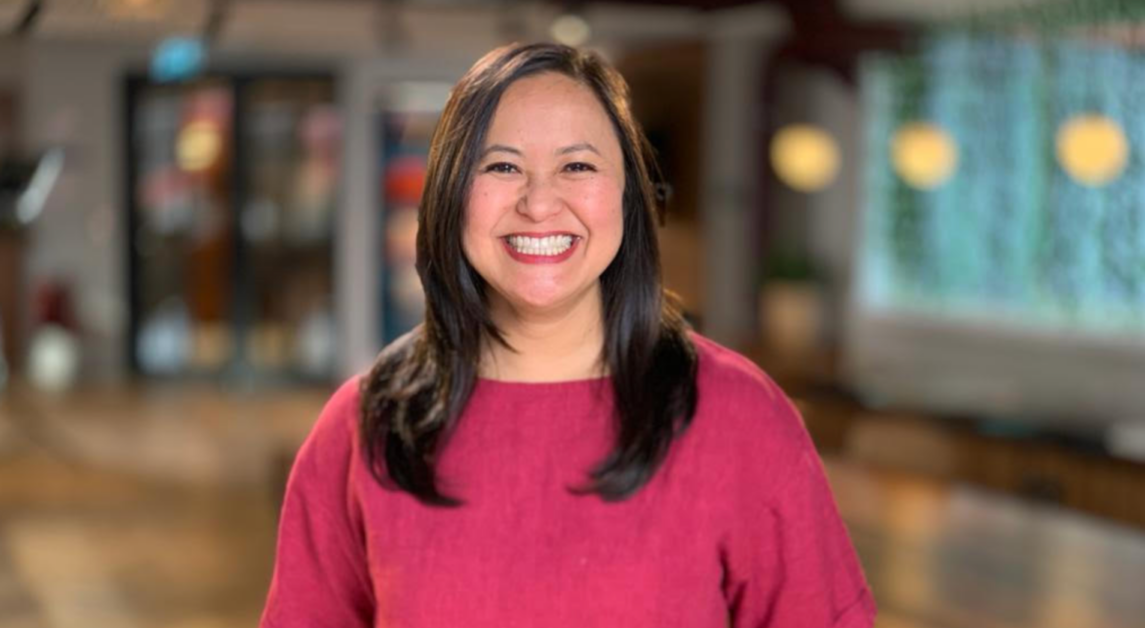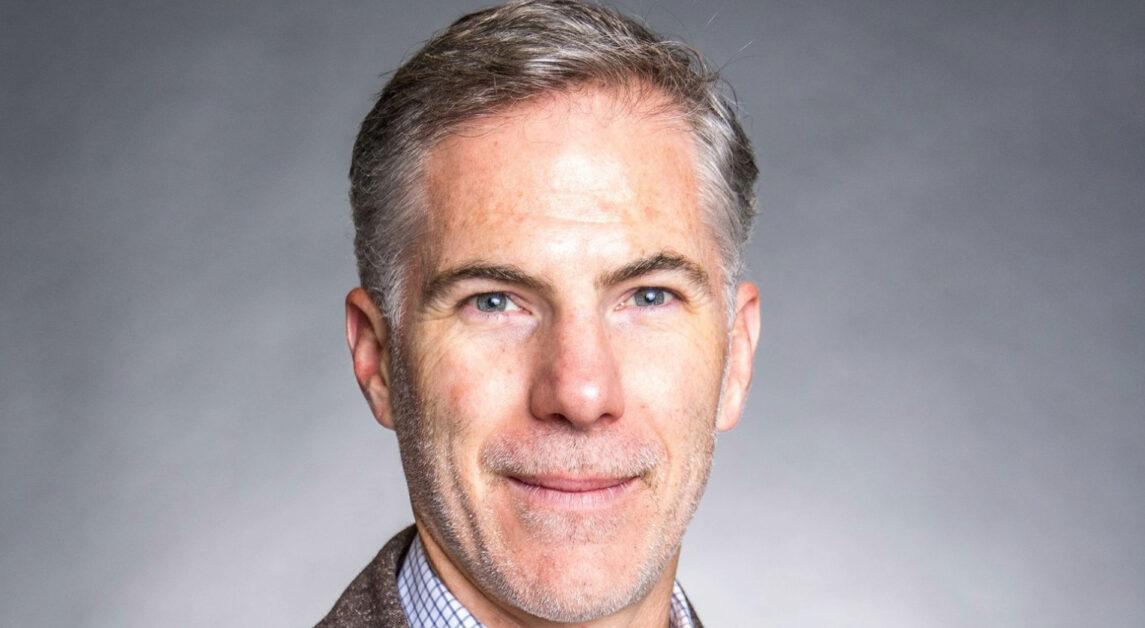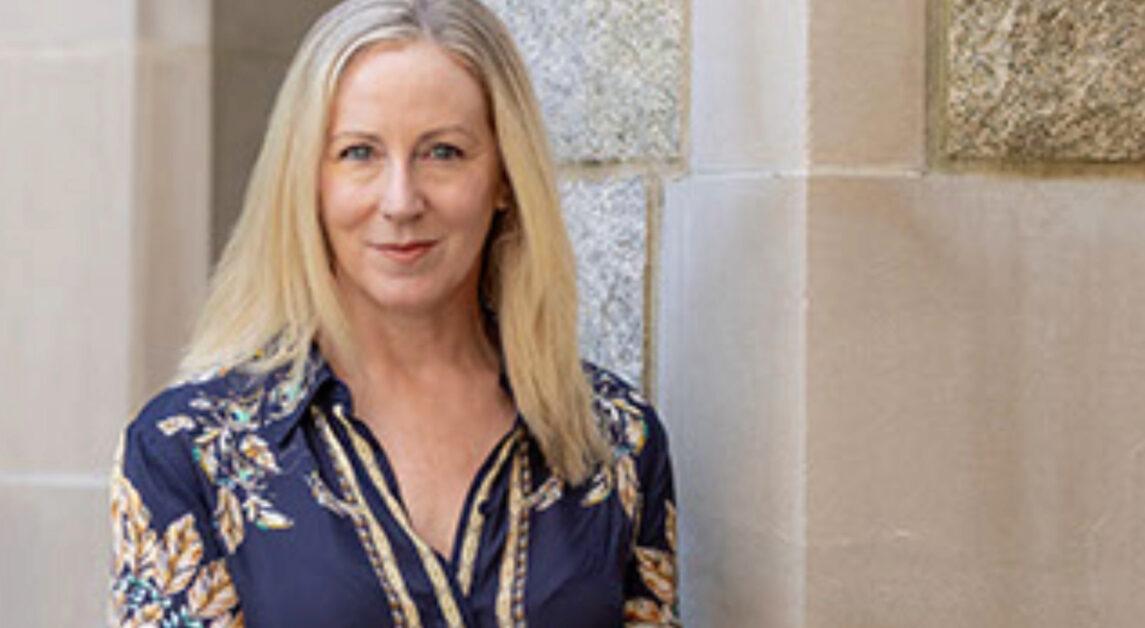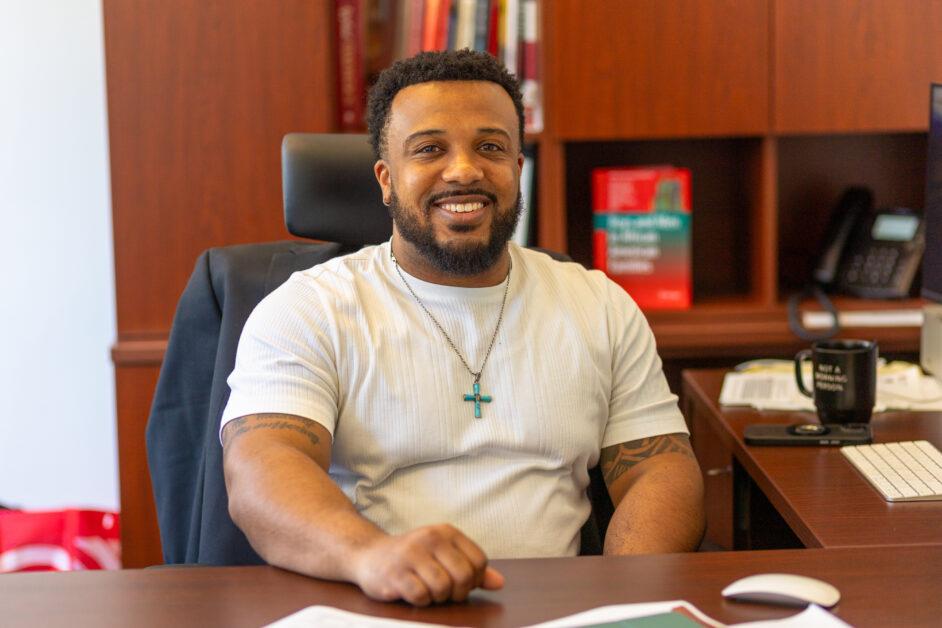After six years of collaborating to investigate the integration of artificial intelligence (AI) into business strategy, Sam Ransbotham and Shervin Khodabandeh realized they wanted to share their insights beyond the limited scope of a research report—so they turned to podcasting.
“We were good at doing a lot of interviews, and they were interesting, but they didn’t always fit perfectly with what we were writing about for that year’s report, and it just crushed us to leave interesting things that people were saying,” Ransbotham said. “So, we thought about packaging those in a different way.”
Ransbotham, a professor of analytics at Boston College’s Carroll School of Management, and Khodabandeh, a senior partner and managing director at Boston Consulting Group (BCG) and co-leader of BCG’s AI practice in North America, contribute their research findings to the Massachusetts Institute of Technology’s Sloan Management Review (MIT SMR) yearly report and now co-host the Me, Myself, and AI podcast.
The show, produced in collaboration with MIT SMR and BCG, released its first two episodes in October 2020 and is currently in its fifth season. Episodes feature guests who detail how they’ve successfully integrated AI into their companies.
“We were trying to find people that we think that our listeners will resonate with and often that does not mean pure technology companies— it tends to mean people using the technologies and likely struggling with some of the same concerns that we think our listeners are struggling with,” Ransbotham said.
Ransbotham said the relationship he and Khodabandeh formed throughout their time working together at MIT SMR transferred well to collaborating for their podcast.
“I think it’s a dynamic that works pretty well because he sees a lot of what is going on within companies,” Ransbotham said. “He’s a really smart and interesting person, and that helps a lot.”
The podcast’s episodes spotlight guests from a wide range of industries—season five includes guests from companies like Land O’Lakes and L’Oréal.
“We’re always kind of looking around for a story that has some unique angle to it,” Ransbotham said. “We will approach people and, you know, people are generally pretty open to doing this. I’ve been very surprised at how we just don’t get that many no’s.”
Ransbotham said the episodes do not typically stick to the planned script, as the discussion between hosts and guests naturally develops.
“I have a script, and we never follow it,” Ransbotham said. “Most of the time, the guests will bring up something that I hadn’t thought of, and it’s interesting, and we’ll get to exploring that. … We’ll never get to all the things that I had planned.”
The podcast’s topic connects to a class Ransbotham teaches within CSOM called Machine Learning and Artificial Intelligence. Ransbotham said he integrates real-world examples mentioned in his podcast into his teachings.
“I like to think that it perhaps makes class a little less dry,” Ransbotham said. “When we’re talking, we can use examples of how people are using [AI], … many of those examples come from people that we’ve talked to on the podcast.”
Anastasia Nullans, a third-year exchange student from the University of Amsterdam, spent the fall semester at BC and took Machine Learning and Artificial Intelligence with Ransbotham to learn more about a field she had no previous experience with.
“I guess what really was surprising to me is how much is still unknown about AI,” Nullans said.
In the class, students put AI concepts into practice through a project where they created their own AI program. Nullans said she and her group created a machine learning program that gathered data from Spotify and tried to correctly predict a song’s genre based on certain characteristics.
“Instead of doing something serious, like stock returns, or like, I don’t know, medicine prediction, we just went with this and he was fully supportive,” Nullans said.
Morgan Seltzer, MCAS ’23, is studying computer science and sociology and chose to take Ransbotham’s class instead of taking a machine learning class in BC’s computer science department. Seltzer said CSOM’s version of the class highlights more real-world applications of AI technology.
“The business school version of it is much more application-focused,” Seltzer said.
Seltzer said their perspective on AI and its role in the world changed after Ransbotham’s class.
“We want to know what’s going on in the world and, you know, machines can definitely help with that,” Seltzer said. “No human is ever going to read a thousand lines or a million data points or whatever.”
Because AI can perform certain tasks efficiently, the fear that AI will replace human jobs is common, but Ransbotham said he does not think the technology will make humans obsolete. He said people should think about how AI can replace menial tasks rather than seeing it as a threat to jobs.
“Humans don’t want to do things that are dirty,” Ransbotham said. “They get bored with things that are dull, and they don’t want to do things that are dangerous. You take a machine that does any of those things for someone, [and] people are thrilled.”
Ransbotham said he has even used AI technology in his own classroom to cut down on some of the more dull tasks of teaching, like making backgrounds for his slides.
Producing Me, Myself, and AI also exposed Ransbotham to new ways AI technology is being used. When he interviewed Sowmya Gottipati, Estée Lauder’s head of global supply chain technology, Ransbotham said he was surprised to hear about how the company uses AI to figure out what scents customers prefer.
“We think about computer vision, we think about, you know, sound processing, image processing, language processing, text processing,” Ransbotham said. “Smell processing, that’s not something that you hear a lot about.”
Through his podcast, Ransbotham hopes to highlight the unique ways certain industries have incorporated AI while also showcasing how humans can interact with this new technology.
“Every [company] has a unique set of challenges and things that are interesting, that are making it unique and interesting—that’s what’s kind of fun about it,” Ransbotham said. “I mean, it’s me, myself, and AI. It’s a very human-focused show.”



